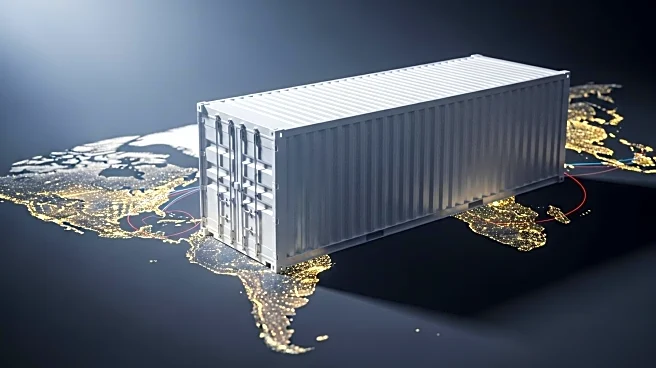What's Happening?
The removal of the U.S. de minimis tariff exemption has led to significant changes in global e-commerce supply chains. This exemption previously allowed small-value imports under $800 to bypass tariffs, facilitating low-cost cross-border trade. Its elimination, accelerated by President Trump's executive order, has imposed tariffs ranging from 10% to 50% on goods from various countries, increasing costs for small and medium enterprises (SMEs) and consumers. Retailers like Walmart and Amazon are adapting by shifting towards nearshoring and domestic warehousing to avoid these tariffs, favoring local supply chain players. Logistics firms and compliance tech startups are expanding services to automate customs processes, reducing costs by up to 40%. This shift has led to longer delivery times and higher prices, as businesses scramble to adapt to more formalized customs processes.
Why It's Important?
The removal of the de minimis exemption is a catalyst for structural innovation in e-commerce. It presents both challenges and opportunities for businesses and investors. SMEs face an estimated $71 billion in additional costs, which could reduce competition and increase consumer prices. However, companies that can navigate the new compliance landscape may benefit from reduced delivery delays and lower compliance costs. The shift towards domestic warehousing and nearshoring could strengthen local economies and create new investment opportunities in logistics and compliance technology sectors. This change signals a long-term realignment of retail operations, with firms integrating domestic production and distribution poised to outperform.
What's Next?
Retailers and logistics firms are likely to continue investing in domestic infrastructure to mitigate the impact of tariffs. Compliance technology startups may see increased demand for solutions that automate customs processes, potentially growing into a $12 billion market by 2033. Investors should focus on logistics firms with expertise in customs compliance and domestic warehousing, as well as startups offering scalable solutions for tariff automation. The long-term winners will be those who embrace the new rules as a chance to build more resilient and efficient systems.










